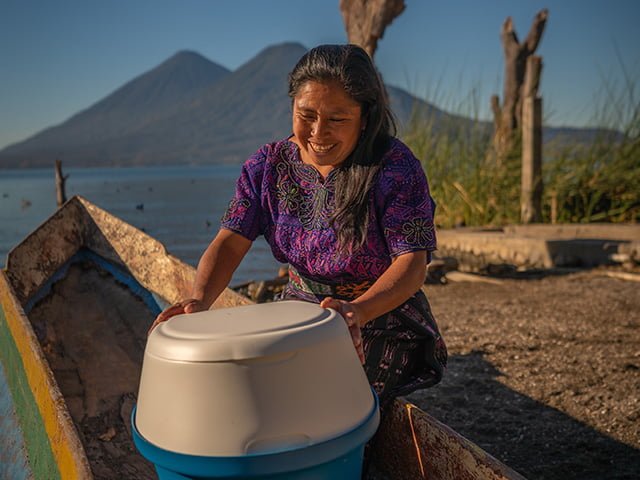UNDP and Switzerland fight corruption together in Guatemala.
Reflection on corruption and its impact on development
January 8, 2024

By Ana María Díaz, UNDP Resident Representative in Guatemala and Roger Denzer, Ambassador of Switzerland in Guatemala
Corruption is an enemy that hinders progress in all spheres of society. Not only does it constitute one of the fundamental causes that hinder access to and compliance with human rights, but it also becomes a source of conflict, exacerbating poverty, weakening the rule of law and paving the way for the illicit use of goods and services and public resources.
On December 9 every year, the International Anti-Corruption Day is commemorated, and this year the United Nations Development Program (UNDP) and the Swiss Embassy in Guatemala joined the call to prevent corruption, promote transparency and strengthen institutions in a comprehensive manner. For some years now, we have supported the efforts of the Supreme Audit Institutions of Guatemala, Honduras and El Salvador, in strengthening transparency and promoting a culture of ethics and accountability in public administration.
This year, the Day takes on special significance, commemorating the 20th anniversary of the United Nations Convention against Corruption, emphasizing the importance of the crucial link between the fight against corruption, peacebuilding, security and development.
According to the Corruption Perception Index (CPI) prepared by Transparency International (TI), the effects of corruption have permeated nations globally and most of them have not achieved significant progress. In its most recent edition, the report reveals that more than two-thirds of the countries evaluated have obtained scores below 50, and the average score has been 43. Guatemala has obtained 24 points. In the last 10 annual instalments of the report, 155 countries have not recorded improvements in their situation with respect to corruption.
This data demands measures to prevent and combat this phenomenon, by strengthening actions to prevent and combat corruption more effectively, facilitating and supporting international cooperation, providing technical assistance in preventing and fighting corruption, as well as promoting integrity, accountability and proper management of public affairs and assets. At this crucial moment in history, these principles become more essential than ever.
This day is also timely to reflect and raise awareness about the consequences that corruption has for the development of countries. Corruption is a scourge that generates enormous losses in all areas, but what is most worrying is that it also undermines trust in institutions, limits citizen participation and slows down the progress of human development.
The need to achieve precise victories against corruption is evident, which motivates the public administration to serve the public and promote the common good, but, above all, we must unify efforts between governments, civil society, the private sector, and academia, to mobilize collective commitment to eradicate corruption.
We know that promoting transparency as value in all areas not only consolidates democracy but also allows us to achieve more inclusive, fair and participatory societies. For this reason, we must reaffirm our commitment towards accompanying countries and people to build a better life.
The text is a translation from the original article published here: https://www.prensalibre.com/opinion/plumas-invitadas/reflexion-sobre-la-corrupcion-y-su-impacto-en-el-desarrollo/

 Locations
Locations